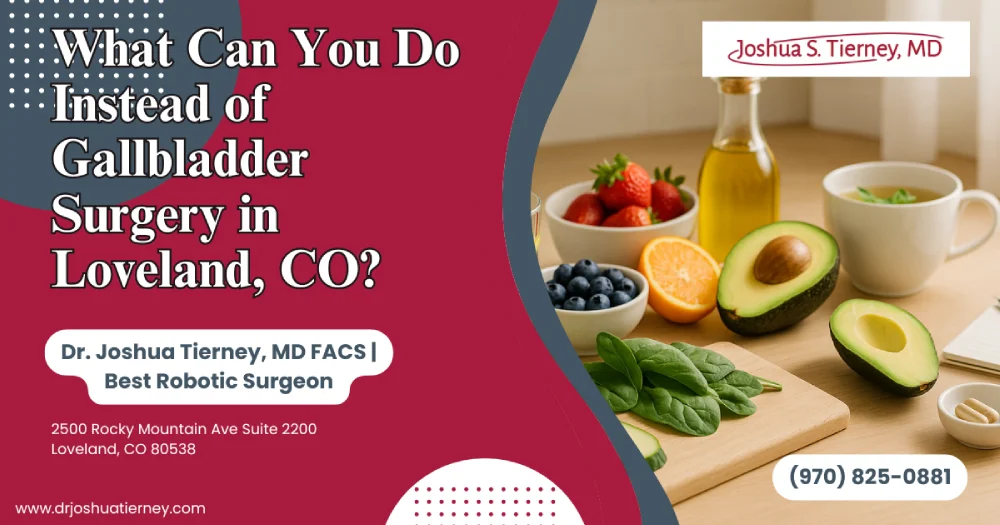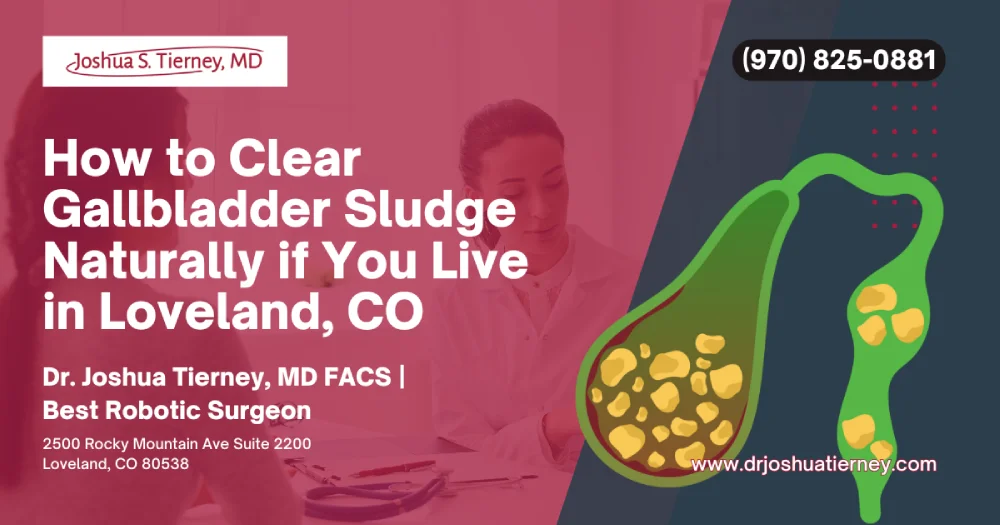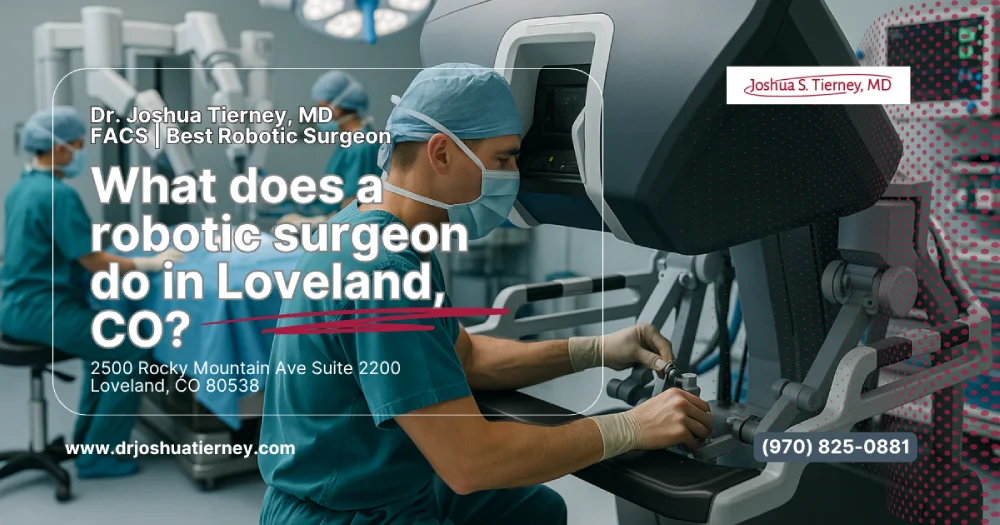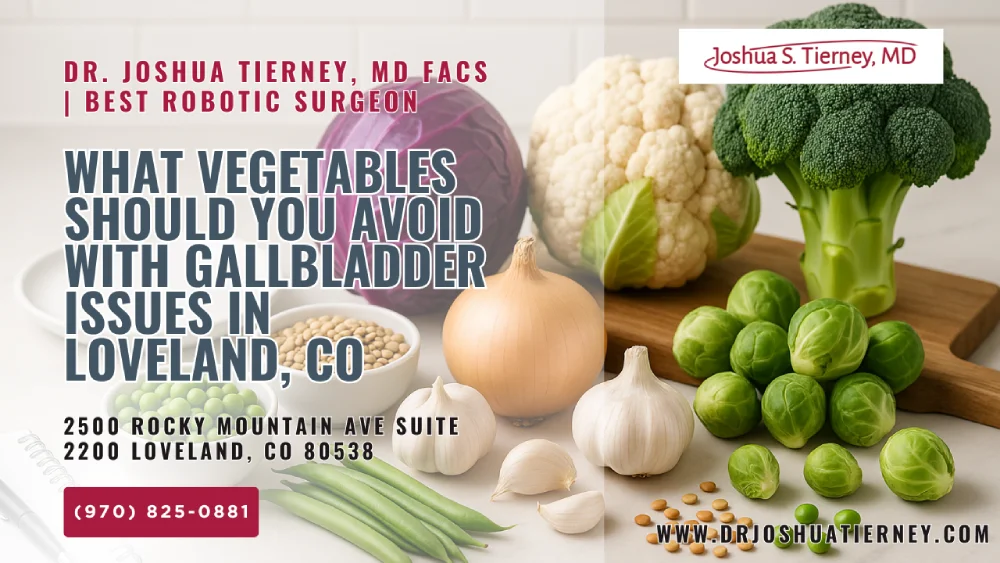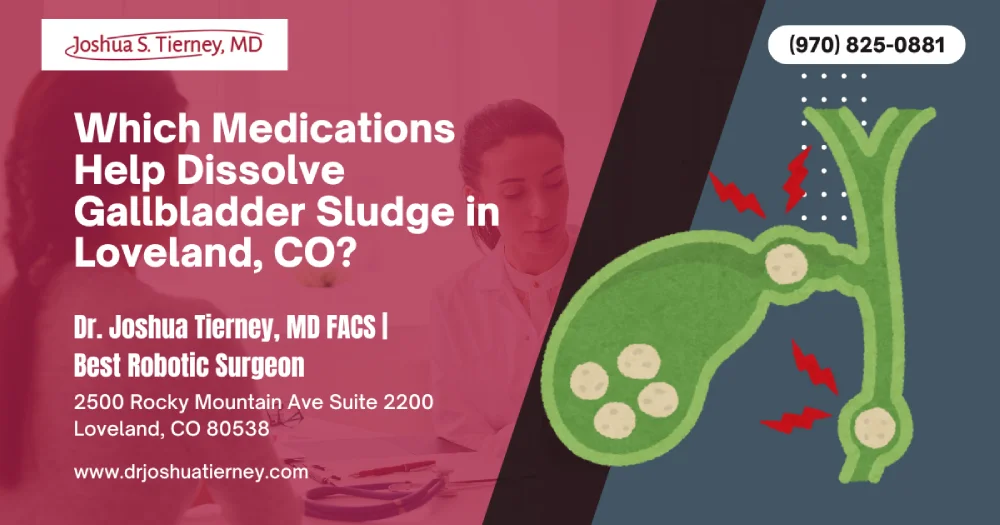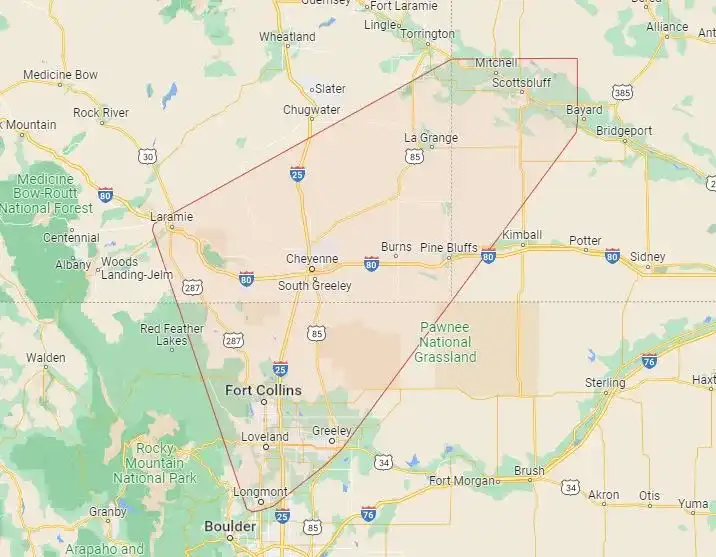Gallbladder trouble is never fun, and the idea of going straight to surgery can feel overwhelming. So, what are your realistic choices in Northern Colorado if you’d like to avoid—or at least delay—a cholecystectomy? Below, we break down every verified alternative available to Loveland residents, from evidence-based medications and ERCP procedures to plant-based meal tweaks that keep bile moving. Whether you live near UCHealth Medical Center of the Rockies, commute from Greeley, or visit Poudre Valley Hospital in Fort Collins, you’ll leave with a clear, actionable plan to protect digestive health and reduce right-upper-quadrant pain.
Key Takeaways
- Gallstones are common, but not every stone needs immediate gallbladder removal.
- Medications such as ursodiol can dissolve small cholesterol stones and buy precious time.
- Minimally invasive tools like ESWL, ERCP stenting, or percutaneous drainage are available at UCHealth and other Northern Colorado centers.
- Smart nutrition—lower refined carbs, gradual weight loss, and herbs like artichoke or dandelion root—can improve motility and thin thicker bile.
- Recognize red-flag signs when early intervention is critical, and know how a fellowship-trained general surgeon develops a treatment plan if surgery becomes necessary.
Understanding Your Gallbladder and Why Stones Crystallize
The liver and gallbladder work as a team. Your liver produces bile; the gallbladder concentrates it until a meal reaches the small intestine. When bile sits too long—think sluggish bile flow caused by high-fat diets, rapid weight changes, or family history of gallstones—its cholesterol can crystallize into stones. Northern Colorado’s higher altitude also thickens bile slightly through mild dehydration, which is why local surgeons keep reminding patients to increase fluid intake.
Types of Gallstones
- Cholesterol stones (about 80%)
- Pigment stones (about 20%) formed from bilirubin
- Mixed stones that feature both cholesterol and calcium
Knowing the chemical makeup tells your GI specialist which non-surgical route—if any—has a real shot at success.
Biliary Motility and the Sphincter of Oddi
Gallbladder emptying is controlled by the sphincter of Oddi. Poor motility can cause bile stasis, sludge, and eventually stone formation. Endoscopic ultrasound or a specialized ERCP can measure duct pressures and diagnose the cause of chronic biliary pain, even when ultrasound looks “normal.”
Medical Therapies Available in Loveland, CO
Ursodiol: First-Line Dissolution
Ursodiol thins bile by replacing hydrophobic bile acids with hydrophilic ones. Loveland gastroenterologists at Centers for Gastroenterology often prescribe 8–10 mg/kg per day for 6–24 months. Periodic ultrasounds at UCHealth Medical Center of the Rockies track progress. Success rates hover around 60 percent when stones are ≤ 5 mm and the gallbladder still contracts.
Chenodiol & Emerging Bile-Acid Agents
Chenodiol offers a second-line option but requires close liver-enzyme monitoring. Newer agents—obeticholic acid, nor-ursodiol—are undergoing trials to see whether they shorten treatment times without raising toxicity.
Pharmacologic Prevention After Bariatric Surgery
Rapid weight loss from sleeve gastrectomy or gastric bypass sharply increases gallstone risk. Northern Colorado bariatric surgeons now start low-dose ursodiol immediately post-surgery to keep bile salts in balance during those fast body-composition shifts.
Minimally Invasive Procedures for High-Risk or Reluctant Patients
ESWL (Shock-Wave Lithotripsy)
Few Colorado facilities own high-energy lithotripters, but Medical Center of the Rockies in Loveland and UCHealth in Fort Collins do. ESWL sends sound waves through the abdomen, fragmenting stones so ursodiol can finish the job. Ideal candidates have one to three cholesterol stones under 2 cm and no calcification.
Endoscopic Retrograde Cholangiopancreatography (ERCP)
ERCP—often combined with endoscopic ultrasound—allows a general surgeon or interventional endoscopist to slide a scope into the bile duct, snare small stones, and place a stent for better drainage. It’s particularly useful in pancreatitis triggered by stones blocking the pancreatic duct.
Percutaneous Cholecystostomy
Critical-care teams at UCHealth Medical Center insert a drain through the skin into the gallbladder to treat severe abdominal pain from acute cholecystitis in frail patients. This buys weeks—or even months—for recovery before elective laparoscopic cholecystectomy.
Lifestyle, Nutrition, and Integrative Options
Build a Bile-Friendly Plate
- Focus on plant-based fiber: oats, lentils, and berries keep bile salts bound and moving.
- Swap saturated fats for monounsaturated oils; avocado toast beats a high-fat breakfast biscuit every time.
- Add lean protein—grilled chicken, tofu—to support overall digestive health without clogging bile ducts with excess cholesterol.
Smart Hydration
Northern Colorado’s dry climate dehydrates you faster than you realize. Aim for at least 2 liters of water daily. A morning glass of lemon water may mildly stimulate bile flow and help detox the hepatobiliary system.
Herbal Supports (Use With Medical Guidance)
- Artichoke leaf extract improves gallbladder contraction.
- Dandelion root tea can thin bile and assist liver detox.
- Peppermint tea relaxes smooth muscle, easing biliary colic.
Consult an herbalist or GI specialist first—some herbs thin blood or alter acidity when combined with prescription meds.
Supplements & Digestive Enzymes
A registered dietitian may recommend pancreatic enzymes if fat malabsorption causes bloat or abdominal discomfort. Vitamin C (500 mg/day) and lecithin granules help maintain proper bile chemistry.
Foods and Drinks to Limit
Carbonated drinks can exacerbate bloating; spicy or overly acidic meals may spike post-surgery dyspepsia. Go easy on heavy cream sauces and fried foods that demand large bile releases.
When Conservative Care Is Not Enough: Knowing the Surgical Options
Early Diagnosis = Better Outcomes
Recurrent right-upper-quadrant pain, jaundice, or pancreatitis signals that gallstones are winning. Early diagnosis via ultrasound, CT, or endoscopic ultrasound coupled with labs (liver function, bilirubin) lets your general surgeon plan a laparoscopic approach before an emergency strikes.
Laparoscopic Cholecystectomy
The gold standard in modern general surgery, this 45-minute operation removes the gallbladder through four tiny ports. UCHealth, Poudre Valley Hospital, and several private Loveland clinics perform thousands annually, boasting low complication rates and same-day discharge.
Open or Robotic Approaches
Open surgery is rare but still used when dense adhesions exist. The newest robotic systems offer three-dimensional vision and wristed instruments that protect delicate bile ducts, though data show similar recovery times to standard laparoscopy.
Preparing for Surgery in Loveland
- Pre-hab with light cardio and core work to improve lung function.
- Stop smoking four weeks prior to protect pulmonary capacity.
- Discuss narcotic-free pain protocols—Northern Colorado surgeons increasingly use nerve blocks and non-opioid meds to cut risk of post-surgery constipation.
Post-Surgery Expectations
Most patients walk within hours, eat low-fat meals the next morning, and drive in five days. Mild diarrhea, sometimes called post-cholecystectomy syndrome, resolves as the small intestine adapts. Keep peppermint tea and soluble fiber on hand, and check in with your surgeon at two weeks to ensure bile duct integrity.
Protecting Gallbladder Health Long Term
Even if you eventually choose surgery, the habits you build now—steady hydration, balanced macronutrients, stress management—will continue to support liver, pancreas, and overall digestive system function. Regular follow-ups with a hepatobiliary specialist, prompt evaluation of any new abdominal discomfort, and periodic lab work help catch rare complications like bile duct strictures or pancreatic enzyme disturbances.
Local Resources for Loveland and Fort Collins Area
- UCHealth Medical Center of the Rockies—24/7 ERCP and surgical critical care.
- Poudre Valley Hospital—high-volume laparoscopic team, fellowship-trained in hepatobiliary surgery.
- Centers for Gastroenterology—endoscopy units using cutting-edge endoscopic ultrasound and capsule studies.
- Private dietitians in Loveland and Greeley specializing in plant-based gallbladder health programs.
- Herbal clinics vetted by the Colorado Department of Regulatory Agencies for safe supplementation guidance.
Partnering with the best doctors across general surgery, GI, and integrative medicine ensures early intervention and a well-rounded plan to support your well-being in the Fort Collins region.
Conclusion
Avoiding gallbladder surgery in Loveland starts with understanding your stone type, symptom pattern, and overall health profile. Medications like ursodiol, targeted minimally invasive procedures such as ESWL or ERCP stenting, and strategic diet plus gradual weight loss offer real, evidence-based alternatives. Work closely with a fellowship-trained general surgeon and a GI team to diagnose the cause of your biliary symptoms, protect digestive wellness, and pivot swiftly to laparoscopic cholecystectomy if severe abdominal pain or pancreatitis develops. Early diagnosis and a personalized plan keep you active, comfortable, and thriving in Northern Colorado’s beautiful high country.
FAQs
Can lemon water really keep my bile from getting too thick?
A daily glass of warm lemon water hydrates you and offers mild choleretic effects, meaning it can encourage the liver to produce more fluid bile. While it won’t dissolve existing stones, consistent hydration in Loveland’s dry climate keeps bile salts diluted and may help prevent sludge from forming.
How does the higher altitude in Northern Colorado affect gallbladder problems?
At 5,000 feet, the air is drier and you lose more fluid through respiration, concentrating bile. Dehydration makes bile thicker, raising gallstone risk. Increasing water intake, adding electrolytes during hikes, and limiting carbonated drinks can offset altitude-related bile thickening.
Is ERCP only for removing stones, or can it diagnose issues too?
ERCP (endoscopic retrograde cholangiopancreatography) is both diagnostic and therapeutic. Your endoscopist can inject dye to outline the biliary tree, measure sphincter of Oddi pressures, snare small stones, and even place stents. It’s invaluable for complex pancreatitis or unexplained post-surgery pain.
Are plant-based diets always low fat? I thought nuts have fat.
Plant-based doesn’t mean fat-free. Walnuts, almonds, and avocados contain healthy monounsaturated or polyunsaturated fats that keep bile moving. The goal is to minimize saturated fats found in high-fat meats and fried foods, not eliminate all dietary fat, which your body still needs for vitamin absorption.
Can peppermint tea really ease biliary colic?
Peppermint contains menthol, a natural smooth-muscle relaxant. Sipping warm peppermint tea during mild episodes of abdominal discomfort can relieve spasms in the bile duct and small intestine. It’s safe for most adults, but avoid if you have severe reflux, as peppermint may loosen the lower esophageal sphincter.
What signs suggest my post-surgery diarrhea is abnormal?
Most loose stools resolve within three weeks after laparoscopic cholecystectomy. If you notice persistent pale stools, weight loss, or night-time urgency beyond a month, let your surgeon know. You may need bile-acid sequestrants, pancreatic enzymes, or an endoscopic check for bile duct leakage.
Does carbonated water harm gallbladder health?
Moderate sparkling water isn’t harmful, but carbonated sodas high in sugar can cause bloating, mask early fullness cues, and trigger excess gas. In someone with gallbladder problems, that additional pressure can worsen right-upper-quadrant pain. Plain water or herbal tea remains the best hydrator.
How does family history influence early intervention?
If a first-degree relative had symptomatic stones or needed cholecystectomy, your lifetime risk nearly doubles. Early ultrasound screening, maintaining a healthy BMI, and periodic liver-enzyme checks let you catch sludge before stones form, leading to less invasive treatments like ursodiol.
Can artichoke extract interact with prescription meds?
Yes. Artichoke leaf can increase bile flow, but it may also potentiate the effects of cholesterol-lowering drugs and some blood thinners. Always bring your supplement list to your GI specialist or general surgeon so they can monitor liver tests and avoid adverse interactions.
Should I detox regularly to protect my gallbladder?
The liver already detoxifies your body. Extreme detox regimens—high-sugar juices, unregulated herbal mixes—may spike insulin or cause electrolyte imbalances, ironically stressing the biliary system. Focus on balanced meals, steady hydration, and evidence-based supplementation under medical supervision for safe, sustainable gallbladder health.


